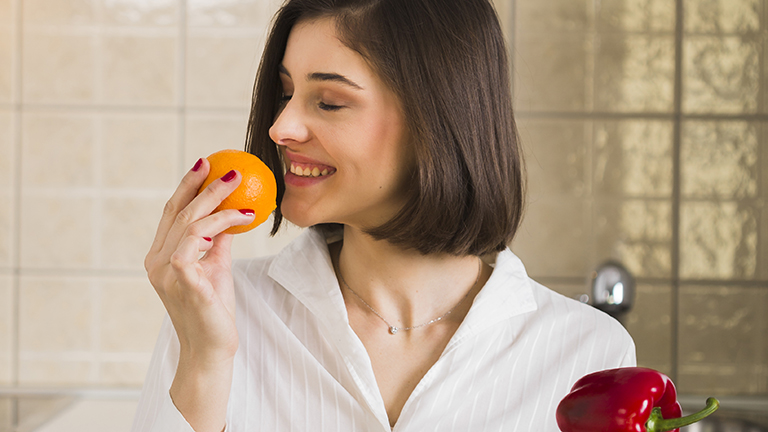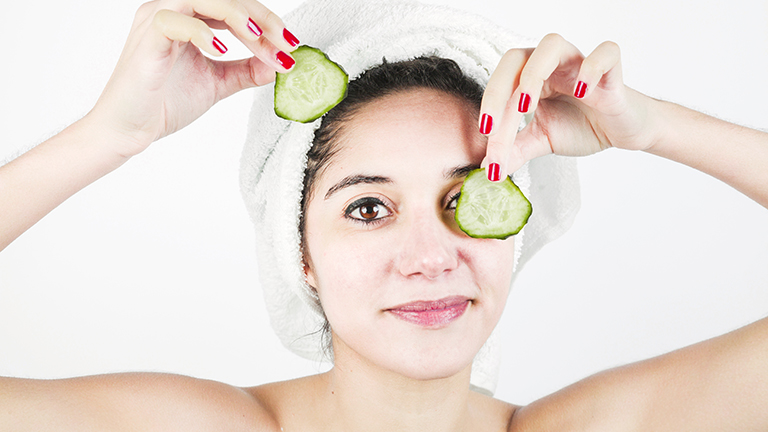Table of Contents Best Foods for Acne-Free Skin
Introduction
Acne is a common skin problem that affects people of all ages. It can cause pimples, blackheads, and sometimes scarring, which can affect confidence and self-esteem. While many people focus on creams and medications to treat acne, what you eat plays a major role in keeping your skin clear and healthy.
Eating the best foods for acne-free skin can help reduce inflammation, balance hormones, and provide the vitamins and minerals your skin needs to stay healthy. Certain fruits, vegetables, proteins, and healthy fats can improve skin appearance, while avoiding some foods like sugary snacks and processed meals can prevent breakouts.
In this article, we will explore the foods that help fight acne, the foods to avoid, daily diet tips, and lifestyle habits that support a clear and glowing complexion. By making simple changes to your diet, you can naturally improve your skin and achieve a healthier, acne-free look.
Understanding Acne and How Diet Affects Skin
Acne occurs when hair follicles become clogged with oil and dead skin cells. Diet impacts acne by influencing inflammation, sebum production, and hormonal balance. Consuming nutrient-rich foods can help prevent breakouts and promote a glowing, healthy complexion. Studies have shown that foods high in antioxidants, vitamins, and omega-3 fatty acids are particularly beneficial in controlling acne.
Why Eating Right Can Transform Your Skin
Eating a diet rich in natural, whole foods not only improves skin clarity but also supports overall health. Anti-inflammatory foods, low-glycemic index meals, and nutrient-dense fruits and vegetables can help combat acne while promoting hydration and elasticity. By making small dietary adjustments, you can see a noticeable reduction in breakouts and a healthier skin texture.
[INSERT_ELEMENTOR id=”5755″]
Best Foods for Acne-Free Skin
Fruits That Promote Clear Skin
Fruits are naturally rich in vitamins, minerals, and antioxidants that fight acne-causing free radicals and reduce inflammation.
- Berries: Blueberries, strawberries, and raspberries are packed with vitamin C and antioxidants that help repair skin cells and prevent acne scars.
- Citrus Fruits: Oranges, lemons, and grapefruits help detoxify the body and support collagen production, promoting smooth skin.
- Papaya: Rich in enzymes like papain, papaya helps exfoliate dead skin cells and unclog pores naturally.
- Kiwi: Contains vitamin C and E, which are essential for skin regeneration and reducing inflammation.
- Watermelon: High water content keeps the skin hydrated, flushes toxins, and minimizes pore clogging.
Vegetables That Reduce Breakouts
Vegetables are loaded with fiber, vitamins, and minerals that cleanse the body from toxins and prevent acne.
- Leafy Greens: Spinach, kale, and Swiss chard are rich in vitamin A and antioxidants that repair skin and reduce inflammation.
- Carrots: High in beta-carotene, which converts to vitamin A, essential for skin cell turnover.
- Bell Peppers: Packed with vitamin C, which boosts collagen and prevents scarring.
- Broccoli: Contains sulforaphane, a compound that supports detoxification and fights acne-causing bacteria.
- Cucumbers: Hydrating and soothing, cucumbers help reduce puffiness and inflammation.
Protein Sources for Healthy Skin
Protein is essential for repairing skin tissue and producing collagen. Focus on clean, low-fat protein sources to reduce acne.
- Fish: Salmon, sardines, and mackerel are rich in omega-3 fatty acids that reduce inflammation and redness.
- Lean Chicken: Provides high-quality protein without excess fat that can worsen acne.
- Plant-Based Proteins: Lentils, chickpeas, and quinoa supply protein and fiber while supporting hormonal balance.
- Eggs: Contain vitamin A, zinc, and essential amino acids that enhance skin repair and immunity.
Healthy Fats for Skin Health
Healthy fats play a vital role in reducing inflammation, balancing hormones, and maintaining skin elasticity.
- Avocado: Rich in monounsaturated fats and vitamin E, avocado keeps skin moisturized and reduces dryness.
- Nuts and Seeds: Almonds, walnuts, chia seeds, and flaxseeds provide omega-3 fatty acids and antioxidants that prevent acne.
- Olive Oil: Anti-inflammatory properties help soothe irritated skin and support a natural glow.
- Fatty Fish: Provides DHA and EPA, which help reduce sebum production and acne formation.
Foods Rich in Antioxidants and Vitamins
Antioxidants fight free radicals that damage skin cells and cause inflammation. Vitamins like A, C, E, and minerals like zinc support skin health and reduce breakouts.
- Vitamin A-Rich Foods: Sweet potatoes, carrots, and spinach improve skin cell turnover and reduce clogged pores.
- Vitamin C-Rich Foods: Citrus fruits, strawberries, and bell peppers boost collagen and reduce acne scars.
- Vitamin E-Rich Foods: Nuts, seeds, and green leafy vegetables protect the skin from oxidative stress.
- Zinc Sources: Pumpkin seeds, lentils, and seafood regulate oil production and minimize inflammation.
- Selenium-Rich Foods: Brazil nuts, eggs, and mushrooms neutralize free radicals and promote a clear complexion.
Foods to Avoid for Acne-Prone Skin
While adding the right foods is essential, avoiding acne-triggering foods is equally important. Some foods can spike insulin, increase inflammation, and worsen breakouts.
- Dairy Products: Milk, cheese, and yogurt may trigger hormonal acne in some individuals.
- Sugary Snacks: Candy, cakes, and soda raise blood sugar levels, promoting sebum production and inflammation.
- Processed Foods: Fast food, fried snacks, and refined carbs contribute to chronic inflammation and acne flare-ups.
- High-Glycemic Foods: White bread, rice, and pasta can worsen acne by spiking blood sugar and insulin levels.
- Excess Salt: Leads to water retention and puffiness, which can exacerbate skin inflammation.
Daily Diet Tips for Clear Skin
Consistency in eating habits is key to maintaining an acne-free complexion. Here’s how to structure your daily diet for glowing skin.
- Hydration: Drink at least 2-3 liters of water daily to flush out toxins and maintain skin elasticity.
- Balanced Meals: Include a mix of fruits, vegetables, lean proteins, and healthy fats in every meal.
- Regular Snacking: Snack on nuts, seeds, or fruits instead of processed junk food to prevent sugar spikes.
- Meal Timing: Avoid late-night heavy meals that can disrupt digestion and affect skin health.
- Supplements: Consider omega-3, zinc, or multivitamins after consulting a healthcare professional if your diet lacks specific nutrients.
Lifestyle Factors That Complement a Skin-Friendly Diet
Eating the best foods for acne-free skin is essential, but diet alone isn’t enough to maintain clear, healthy skin. Several lifestyle habits can significantly affect how your skin looks and responds to treatment. Managing these factors alongside a healthy diet can help you achieve long-lasting results.
Stress Management
Stress is a major trigger for acne. When you’re stressed, your body produces more cortisol, a hormone that can increase oil production in your skin, leading to clogged pores and breakouts. Incorporating stress-relief activities such as meditation, yoga, deep breathing exercises, or even hobbies you enjoy can help reduce acne flare-ups and improve overall skin health.
Sleep and Skin Repair
Sleep plays a vital role in skin regeneration. During deep sleep, your body repairs damaged skin cells and balances hormones. Poor sleep can increase inflammation, worsen acne, and make your skin look dull. Aim for 7–9 hours of quality sleep each night to allow your skin to heal naturally and maintain a radiant complexion.
Exercise for Healthy Skin
Regular physical activity improves blood circulation, delivering oxygen and essential nutrients to your skin. Sweating also helps flush out toxins, though it’s important to shower afterward to prevent clogged pores. Combining exercise with a balanced diet supports both your overall health and the natural glow of your skin.
By focusing on stress management, sufficient sleep, and regular exercise alongside a skin-friendly diet, you can maximise your skin’s ability to stay clear, hydrated, and acne-free.
[INSERT_ELEMENTOR id=”5108″]
Conclusion: Best Foods for Acne Free Skin
Maintaining clear, healthy skin is not just about using creams or treatments—it starts from within. Choosing the best foods for acne-free skin can make a huge difference in reducing breakouts and improving overall skin health. Incorporating nutrient-rich fruits, vegetables, lean proteins, and healthy fats helps provide the vitamins, minerals, and antioxidants your skin needs to stay strong, hydrated, and glowing. At the same time, avoiding foods high in sugar, processed ingredients, and certain dairy products can prevent inflammation and hormonal triggers that worsen acne.
However, diet alone isn’t enough. Lifestyle habits such as managing stress, getting enough sleep, and exercising regularly play a crucial role in supporting your skin’s natural repair processes. Combining a balanced, skin-friendly diet with healthy lifestyle choices ensures your body has the tools it needs to combat breakouts, regenerate skin cells, and maintain a radiant complexion.
By following these strategies consistently, you can naturally improve your skin’s texture, reduce pimples, and enjoy a clearer, healthier appearance. Remember, clear skin is a result of both nourishment and care—making small, daily changes can lead to long-lasting results that benefit both your skin and your overall well-being.


